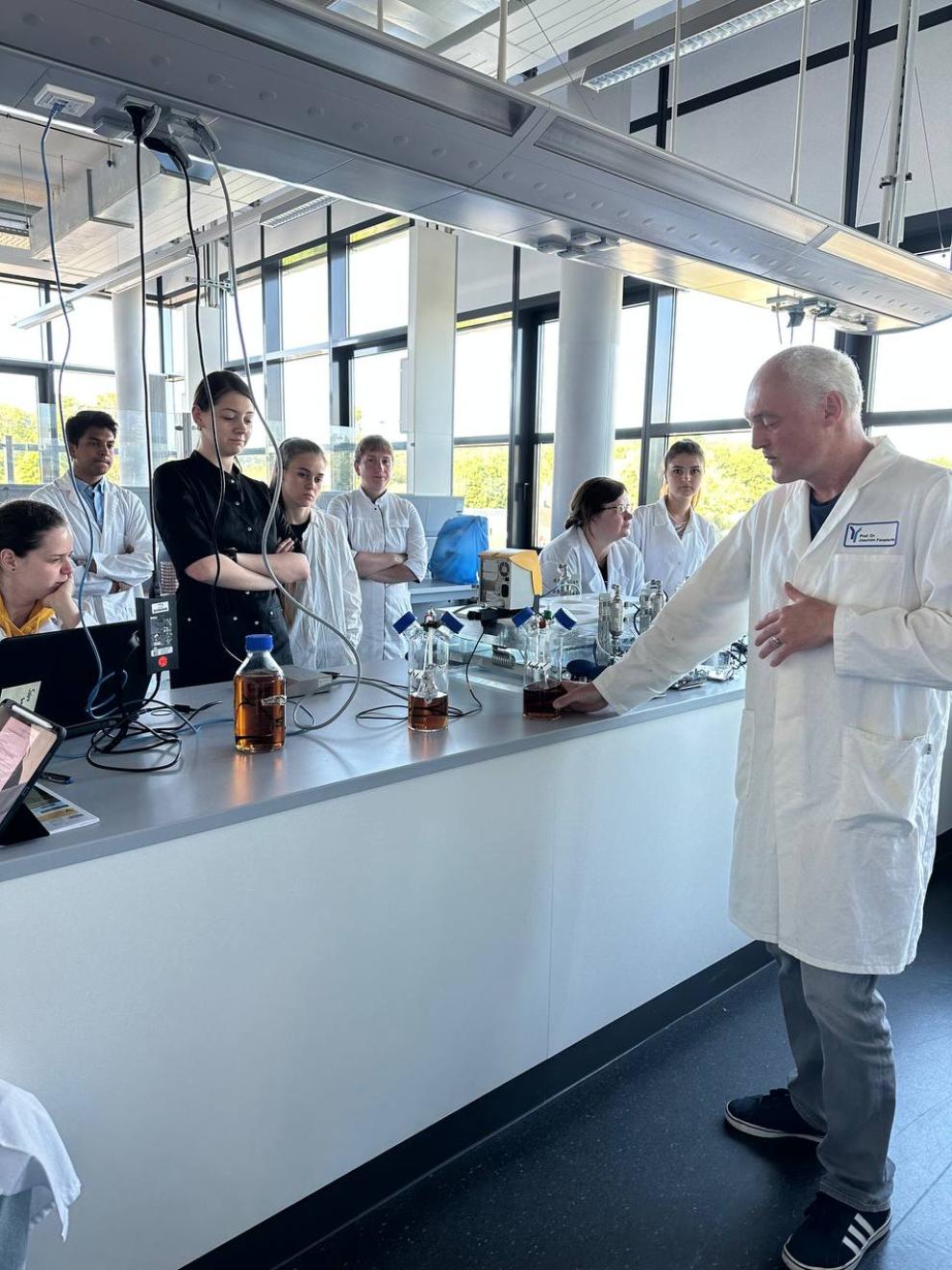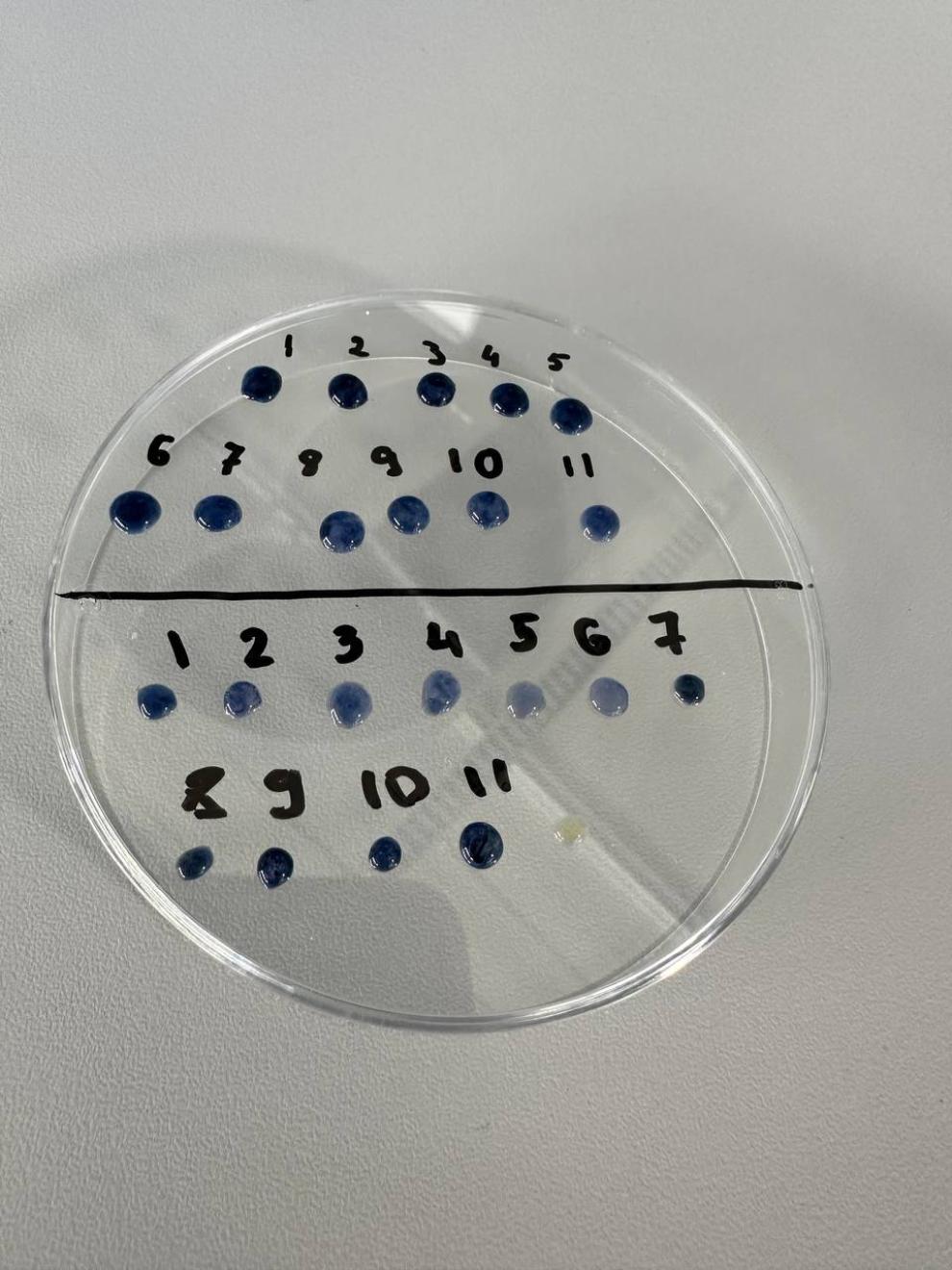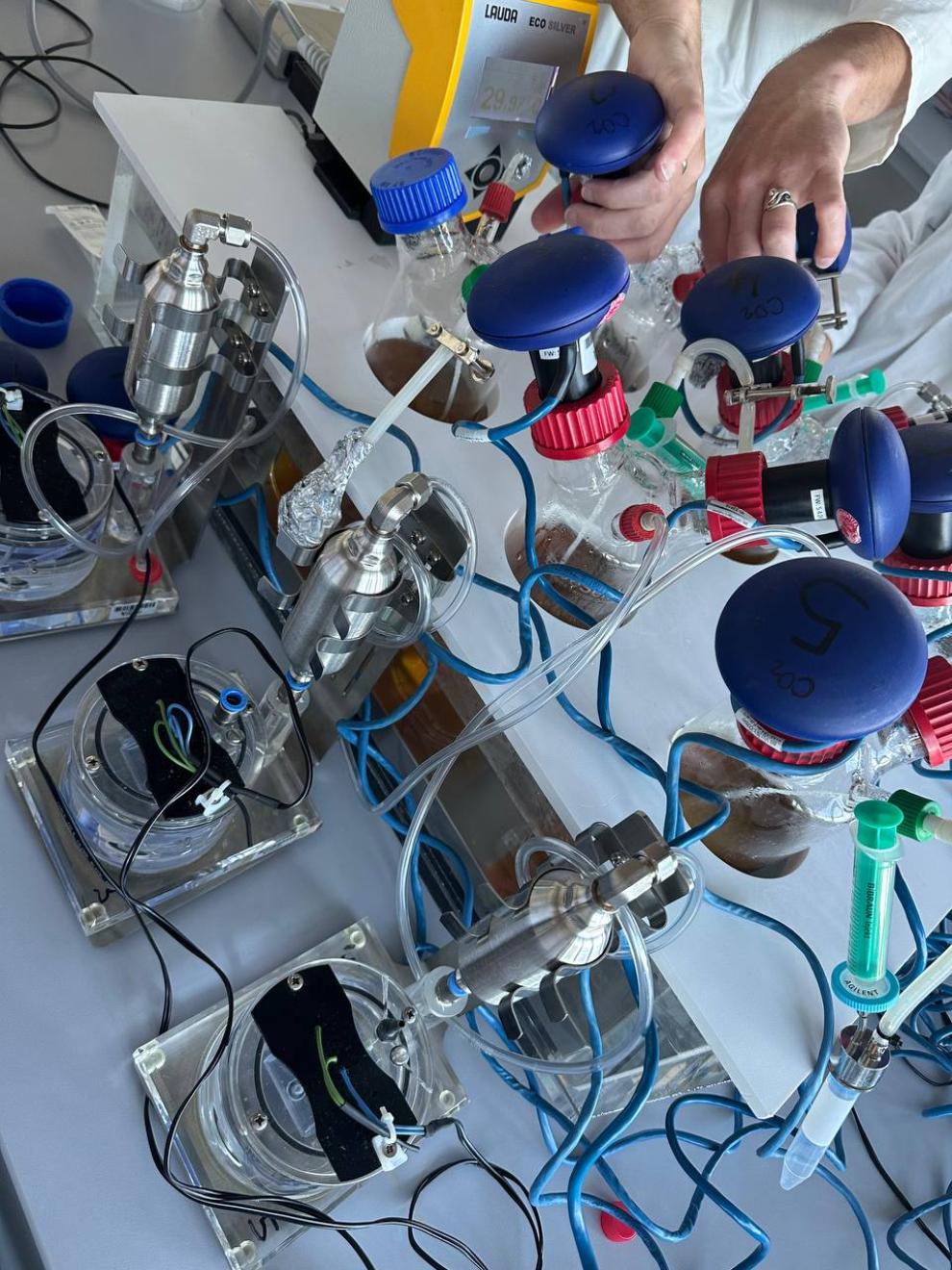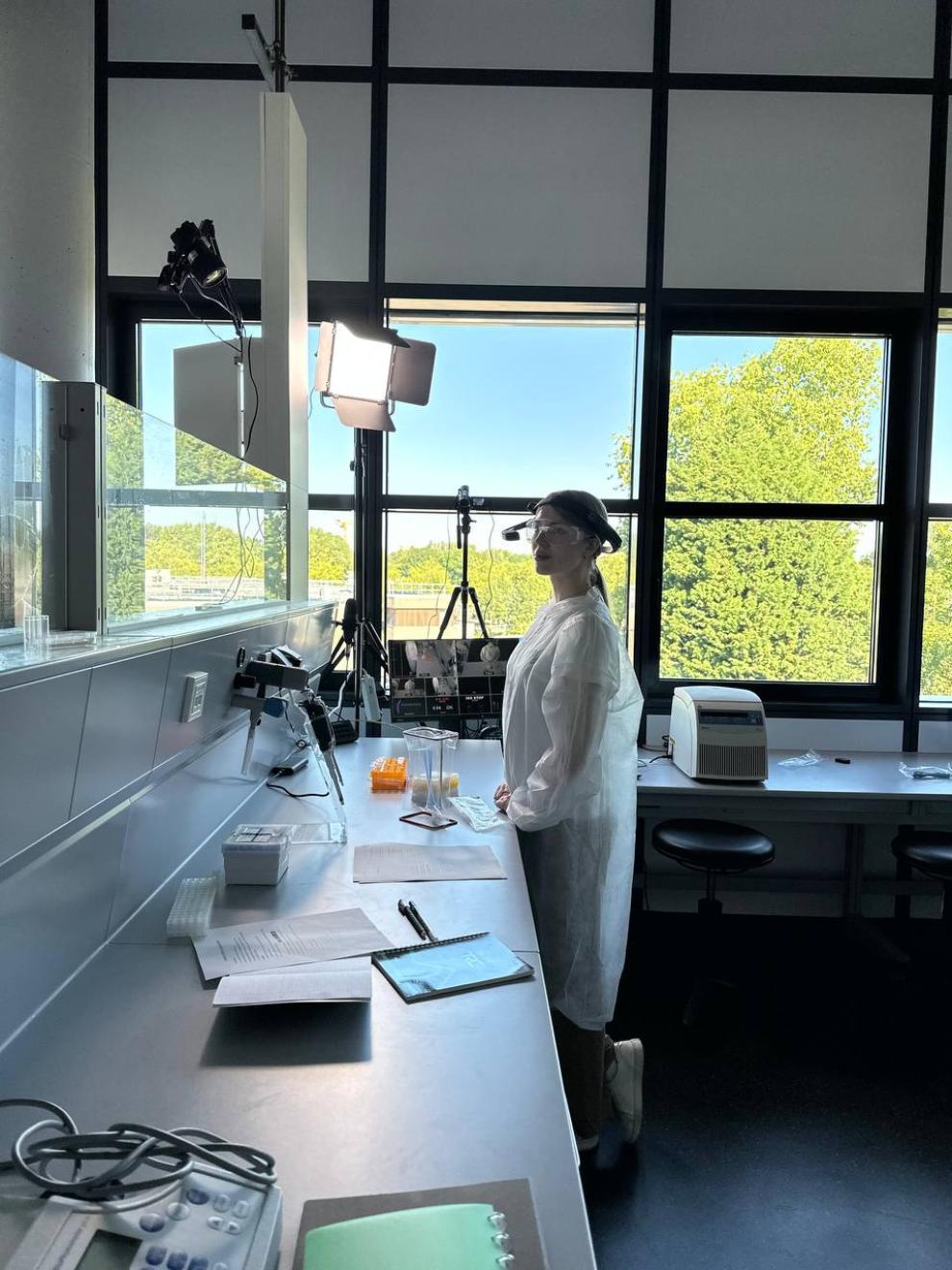Year in Review: The HSRW Life Sciences Faculty and Charkiv Summer School Collaboration
Enabling cross-border learning in times of uncertainty
As we look back at the end of the year, we reflect on the initiatives that have made a difference. Among these, the collaboration between HSRW's Life Sciences Faculty and the Charkiv Biotechnology School stands out as a beacon of hope and progress in challenging times.
In times when armed conflict is an ongoing reality, the collaboration between HSRWs Life Sciences Faculty and the Charkiv Biotechnology School portrays the common efforts of the DAAD and our faculty to offer enhanced learning possibilities to students in Ukraine.
The Collaboration
This partnership not only supports hybrid and on-site courses but also introduced an innovative Summer School in 2023.
Summer School 2023: A Blend of Hybrid and On-Site Learning
During the recent Summer Semester, Charkiv students and lecturers joined HSRW’s program, exploring diverse Bioengineering courses and earning accredited ECTS.
On-Site Summer School Experience
An on-site Summer School, carefully designed with input both from HSRW and Charkiv lecturers integrated practical content from different courses, including Applied Microbiology and Industrial Bioengineering. 16 biotechnology students and 4 lecturers traveled from Charkiv to Kleve for a 2-week stay, offering them a chance to improve their practical skills in the laboratory and to experience a new country and culture.
Student Testimonials
"This year I took part in the summer school, in Rhein-Waal university. I really liked this experience, every day we walked and saw local sights, our student buddies took us to different cities, we made many exciting experiments in the laboratories. I’m really delighted, because there’s a war in Ukraine now and we don’t go to laboratories, in Germany we studied for two weeks, this is really valuable for us. Thank u, it was a great time!" – Olena Zorik, 4th semester Biotechnology student from Charkiv.
Innovative Learning: The Role of Smart Glasses
"Smart glasses made a big difference in our hybrid learning. In Professor Fensterle’s labs, we are trying out these glasses as live help during lab courses through the SmartLabOER project. Although we are still working on fully integrating them, during the Summer School we used them to record real-time lab sessions for students who could not be there in person. This meant students could talk about their work based on the videos. While it does not replace actual hands-on lab work, it definitely adds a new way for students to join in and interact compared to just watching recorded sessions."
Looking back ahead
As we conclude this year, we celebrate the success of the HSRW and Charkiv collaborative Summer School. This initiative has not only provided valuable educational experiences but also fostered international cooperation and cultural understanding in challenging times. We look forward to continuing and expanding such fruitful collaborations in the future.




